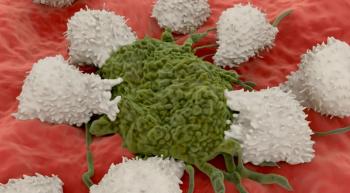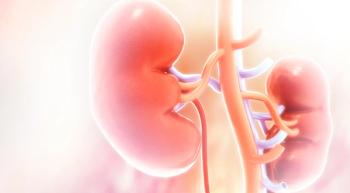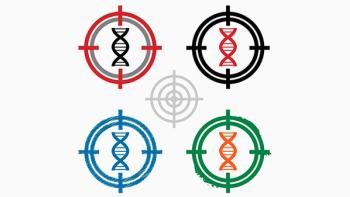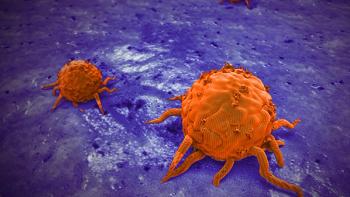
Mosunetuzumab, an off-the-shelf outpatient therapy with a fixed duration of treatment, demonstrated promising responses in patients with relapsed/refractory follicular lymphoma.

Mosunetuzumab, an off-the-shelf outpatient therapy with a fixed duration of treatment, demonstrated promising responses in patients with relapsed/refractory follicular lymphoma.

Neoadjuvant pertuzumab/trastuzumab increased the rate of pathological complete response in patients with HER2-positive breast cancer.

Rechallenge with maintenance olaparib following response to platinum-based chemotherapy significantly improved PFS in heavily pretreated patients with relapsed ovarian cancer.

Encorafenib (Braftovi) plus cetuximab (Erbitux) with or without binimetinib (Mektovi) demonstrated longer maintenance of quality of life (QoL) on patient-reported assessments over current standard of care in the treatment of patients with BRAF V600E-mutant metastatic colorectal cancer.

Steroid use while cytokine release syndrome (CRS) and neurologic toxicities are at grade 1, instead of waiting until grade 3, reduces the rate of CAR T-cell treatment–related CRS and neurologic events.


Atezolizumab, along with T-DM1, showed benefit for a subgroup of patients with breast cancer.

The combination of dabrafenib (Tafinlar) and trametinib (Mekinist) induced responses in nearly half of patients with BRAF V600E–mutated biliary tract cancer (BTC) who participated in a phase II basket trial that enrolled patients with BRAF V600E–mutated rare cancers.

Preliminary findings from the SLI phase of the BEACON CRC trial show tri-drug combo has durable response in patients with BRAF V600E-mutant metastatic CRC.

Combining the BCL-2 inhibitor venetoclax (Venclexta) with endocrine therapy elicited notable activity with a tolerable safety profile in patients with estrogen receptor (ER)–positive and BCL-2–positive metastatic breast cancer.

CT-P6, a proposed biosimilar to trastuzumab, exhibited long-term disease-free survival (DFS) and overall survival (OS) similar to the reference product in the treatment of patients with HER2-positive early breast cancer.

Chimeric antigen receptor (CAR) T cells targeting the tyrosine kinase receptor ROR1 can be transferred into patients safely and the cells expand in vivo, according to first in-human study of CAR T cells in patients with solid tumors.

Improvements observed in progression-free survival and overall survival with the addition of first-line atezolizumab (Tecentriq) to nab-paclitaxel (Abraxane) in patients with metastatic triple-negative breast cancer (TNBC) or inoperable locally advanced TNBC are exclusive to those patients with PD-L1 expression ≥1% in immune cells, according to a biomarker subgroup analysis of the phase III IMpassion130 study.1

Trifluridine/tipiracil (FTD/TPI; Lonsurf) reduced the risk of death in patients with heavily pretreated gastric or gastroesophageal junction (GEJ) cancer by 31% compared with placebo, according to data from the phase III TAGS trial.

Though many patients with HPV-positive oropharyngeal cancer have been treated with cetuximab (Erbitux), results from the international De-ESCALaTE HPV trial showed that chemoradiotherapy, the current standard of care, is still the most effective.

The conditioning regimen that takes place before an allogenic hematopoietic stem cell transplant (HSCT) can improve outcomes by reducing risk of relapse.

When treating patients with CAR T-cell therapy, it is important that nurses are involved in the patient education and care coordination, so patients can be fully prepared for potential adverse events.

Extended follow-up of patients with castration-resistant prostate cancer (CRPC) and bone metastases randomized to radium-223 dichloride in the phase III ALSYMPCA study revealed a continued low incidence of myelosuppression and no association with secondary malignancies.

A higher cumulative dose of the proteasome inhibitor bortezomib, including a longer duration of treatment and/or higher dose intensity, appears to improve overall survival in patients with previously untreated multiple myeloma

Published: January 3rd 2023 | Updated:

Published: September 21st 2021 | Updated:

Published: February 27th 2017 | Updated:

Published: March 1st 2017 | Updated:

Published: October 29th 2018 | Updated:

Published: November 2nd 2018 | Updated: